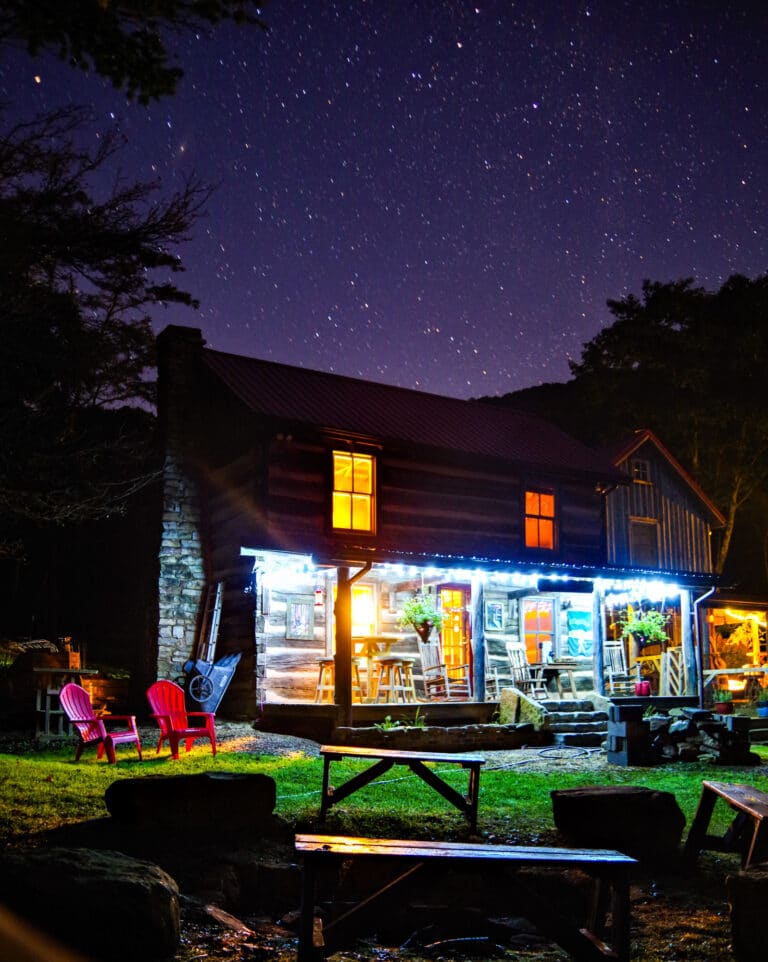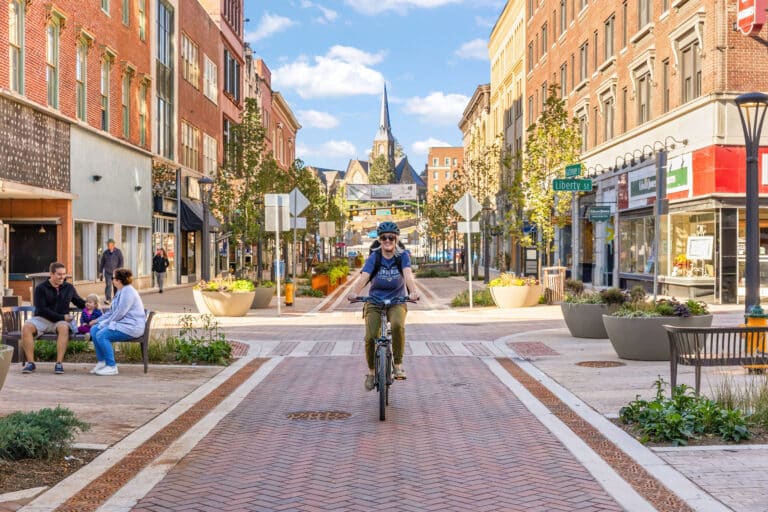Editor’s Note: This story was printed in our October issue before Hurricane Helene devastated portions of western North Carolina and surrounding areas. Destinations in this article are currently dealing with effects of the storm and most likely not able to be visited. Contact local officials for more information. Read how to help those affected by Helene here.
Hikers attempting the entire 2,200-mile Appalachian Trail need quality stops for a respite from the backcountry. Fortunately, the Blue Ridge portion of the famous footpath, which runs from Georgia to Maine, has some easily accessible spots to grab new gear or a night of rest with small-town charm and blackberry milkshakes. Here are five thru-hiker favorites.
Barefoot Hills
Dahlonega, Ga.
Dahlonega is a blip of the radar for people who are passing through the region. However, for Appalachian Trail thru-hikers, it’s well-known for its proximity to Springer Mountain, gateway to the trail’s southern terminus. This well-reputed hotel was started in 2004 as The Hiker Hostel by former thru-hikers, Josh and Leigh Saint. It’s since expanded its lodging options and become Barefoot Hills, but it’s still focused on accommodating Appalachian Trail hikers, offering shuttles to sections of the trail in Georgia.
Mountain Crossings at Neel Gap
Blairsville, Ga.
One of the first things that visitors to Mountain Crossings notice are dozens of pairs of boots and sneakers hanging from a tree. Located just under 31 miles from the southern terminus of the A.T., Mountain Crossings is one of the first big milestones for many long-distance hikers, and one of the first places where they can exchange their shoes for a better-fitting footwear option. Most thru-hikers reach the store after hiking Georgia’s tallest Appalachian Trail peak, Blood Mountain. When they make it, they’re greeted by a business with great hiker amenities: a hostel, a mail drop station, and store. And the business has been known to offer hikers “shakedowns” (assistance with lightening their packs by sending unnecessary gear home).
Nantahala Outdoor Center
Bryson City, N.C.
After a steep descent, Appalachian Trail hikers walk right into the Nantahala Outdoor Center (NOC) about 136 miles after beginning a northbound journey. This outdoor center is a popular regional river outfitter but, for hikers, the NOC is typically used as a campsite or bunkhouse for a rest day. The premises feature a number of restaurants, lodging options, and activities like zip lining, tubing, kayaking and mountain biking. Visitors often pass the day watching kayakers and other water adventurers while picnicking from the shore.

Woods Hole Hostel
Pearisburg, Va.
Woods Hole Hostel is a small mountain paradise with a promise of food and shelter. As legend would have it, it was the late 1930s when a couple went looking for a place to live in southwest Virginia and found Woods Hole. They fixed her up, eventually bought the place, and used it to house everyone from hunters to passersby. This practice continues, but it’s become predominantly a hiker haven these days. The property looks like an old-country farmstead with a rustic appeal. But it is best known for its community meals, which usually utilize locally grown vegetables, and Neville’s bread. In addition to filling hikers’ stomachs, this hostel provides all the basic trail amenities: mail drops, showers, laundry, snacks, and wifi.
Shenandoah Waysides
Shenandoah National Park, Va.
Shenandoah National Park is home to 101 miles of the Appalachian Trail. The park’s waysides, small, grab n’ go convenience stores with menus full of American classics, are legendary among long-distance hikers. After spending months in the woods, miles away from civilization, these pit-stops provide convenient and easily accessible lunch options. The most popular food item among Appalachian Trail hikers is the blackberry milkshake that can be found at these locations. It’s so memorable that some hikers vow not to miss a wayside for fear of losing out on a milkshake.
All photos courtesy of Woods Hole Hostel.







